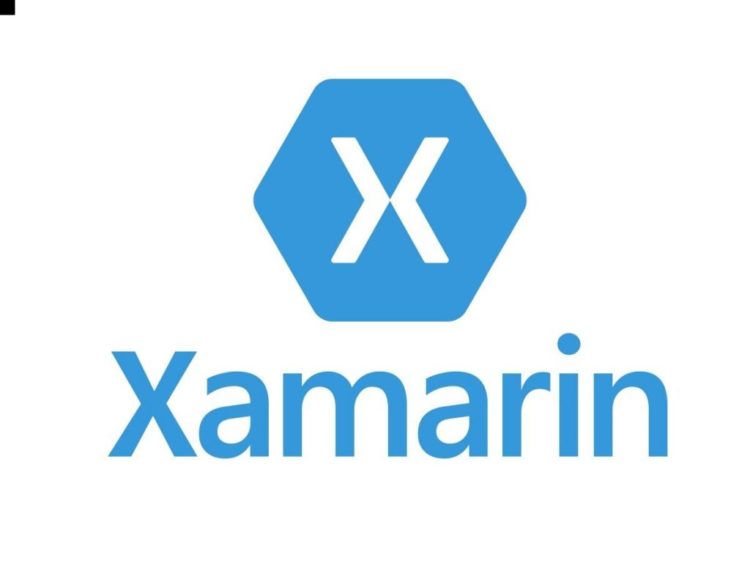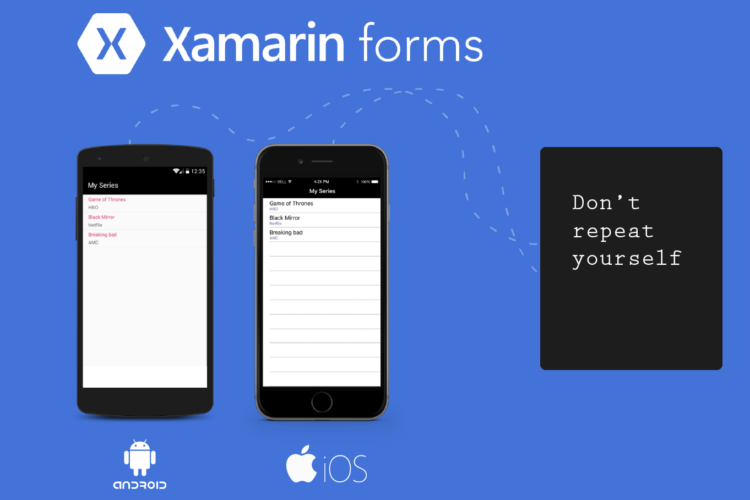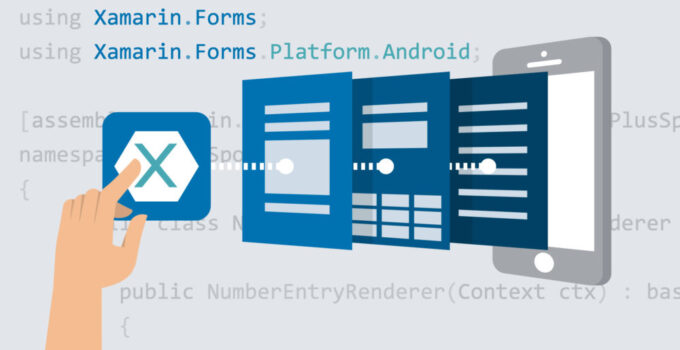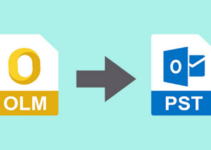Some of the biggest companies in the world use Xamarin to deliver applications. It guarantees a seamless customer experience, which is one of the primary reasons behind its widespread adoption. For those who are new to Xamarin, its ability to simplify mobile app development is always astounding since it rescues them from the vicious cycle of code development from scratch, for disparate mobile platforms.
Xamarin was built from the ground up to be a platform-agnostic mobile app development framework. It is compatible with Android, iOS, macOS, Windows, GTK#, and Tizen app s built using Xamarin can be made to be compatible with almost all mobile OS platforms with a single, shared .NET codebase. Companies like Fox Sports and Alaska Airlines proudly use Xamarin integrated mobile phone apps to deliver a smooth customer experience.
Xamarin is one of the major toolsets developed for multiplatform platform mobile development. The main selling point of the framework is the ‘Write Once, Use Everywhere’ approach that brings along the possibility to build a single code for Android and iOS or other platforms. Xamarin is a fragment of Microsoft’s software development. This puts it above all competitors as it is backed up by continuous support, learning opportunities, superior performance.

Xamarin for Enterprise App Development
Xamarin app developers get access to a wide variety of components that are both free and paid to come up with a wide variety of app development schedules. This flexibility to create a customized development schedule for clients can be the difference between a lost prospect and a paying customer.
Businesses today have become faster and more proactive. Every business owner, whether a start-up or an MNC, needs to see fast results. This is because of the stringent competition in every industry domain and the prolific rise of smartphones as a key medium for bringing business information to the fingertips of customers.
Xamarin gives business across the globe a chance to make their presence felt in as little time as possible. All thanks to the robust nature of the platform, its multifaceted features, and functionality that facilitates multiplatform platform development with the need to develop code from scratch.
Pros of Using Xamarin for App Development
Xamarin allows developers to build applications fast without compromising on the quality of the final product. Xamarin builds native apps that utilize platform-specific APIs and hardware acceleration with native UI controls.
Developers who want to save time and lots of effort on the development process must use Xamarin as it saves both time and resources, a winning combination that makes it a coveted option among mobile app developers. It helps streamline development tasks to a great extent and brings along numerous benefits. Here are some of the many that have helped it rise to the limelight.

- Xamarin apps utilize shared codebase and C#. Since these programming languages form the base to the majority of computing platforms, Xamarin wraps the platform-specific language, data-structure, and application interface into a .NET layer. This enables cross-platform development seamlessly.
- Xamarin enables rapid prototyping. Xamarin forms provide developers with easy access to cross-platform user interface toolkit for building cross-compatible platforms. As a result, the development of single UI for all computing devices enables developers to share codes without having the need to modify the user interface for different platforms.
- Xamarin apps can access native APIs, and hence, it enables using completely native user interfaces and SDKs, including wireless platforms such as Bluetooth, etc.
- Maintenance and updates become simpler for Xamarin built apps. Any change in the source file will reflect directly on the apps.
- Simplify development-related operations as Xamarin apps are built with shared codes, and this eliminates the need to rewrite, recompile, and translate the coding to make it work on different platforms. Xamarin apps are deployment-ready for all major platforms.
- If your business tends to run on tight deadlines, Xamarin would be the ideal choice for your developers to deliver fast results. Xamarin code sharing capabilities allow running tests easily through 2000 devices. These enable developers to pick up code inconsistencies quite simply.
The Cons
- Though Xamarin is free for small business organizations and individuals, large enterprises require investing in Microsoft Visual Studio’s license, which is quite expensive. Based on business-specific requirements and size of the organization, the fee for single-user licenses and enterprise licenses varies.
- Xamarin may not work well for applications with heavy graphics as each operating system has its own style to visualize content.
- Larger app size might add to its cons as Xamarin contributes 3MB to 5MB for release and about 20 MB for debug builds.

Xamarin Wins: An Ultimate Cross-Platform App Development Tool
It is evident that the pros of Xamarin far outweigh the cons, making it an invaluable tool for mobile app developers all over the world. For any developer looking to make their life easy with fast development times, the now, Microsoft owned business organization has all the right bells and whistles.
One area where the development tool shines through is in its ability to keep multiplatform development in sync, according to FlatworldEDGE. Developers can keep track of development times and set realistic expectations with clients. Not only does it reduce the time and resources required in developing a powerful app, but it also helps developers overcome traditional mobile app development challenges such as code reusability and lack of intuitive features.
With all the limitations and flaws, Xamarin is still a robust and performance-oriented cross-platform app development solution. Microsoft’s regular updates and backup makes Xamarin even more powerful app with multi-spectral functionality.





